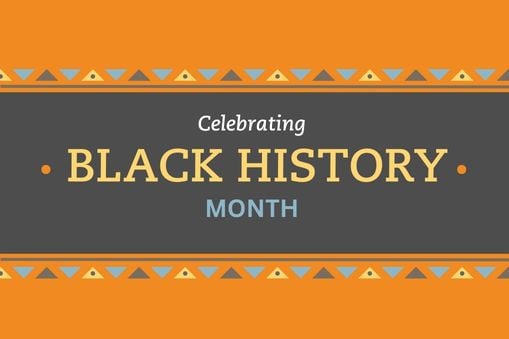
Black history is American history, and because we recognize that the work to make our nation’s history more fully known and understood is ongoing, we will join Americans across the country in celebrating Black History Month throughout February.
The contributions of many Black Americans are known, but the men and women who came before them are many times lesser-known.
So, as Black History Month begins, we want to shine a light on the lives of some of the names you may not know.
We begin with the history of Black History Month itself.
Carter G. Woodson is known as the “father of Black history.” Born in 1875 to parents who were former slaves, Woodson worked in coal mines in West Virginia before entering high school full-time at the age of 20. He earned a bachelor’s degree from Berea College in Kentucky, a second bachelor’s degree and a master’s degree from the University of Chicago. He then became just the second Black man after W.E.B. DuBois to complete a Ph.D. at Harvard University.
In 1915, he founded the Association for the Study of Negro Life and History because he felt the role of Black men and women was being ignored or misrepresented by historians. He went on to publish The Journal of Negro History and choose the second week of February for Black History Week to coincide with the birthdays of Abraham Lincoln and Frederick Douglass.
Before there was Dominque Dawes, there were Luci Collins and Dionne Foster. You probably remember Dawes. She was a three-time Olympian, and the first Black person to win an Olympic gold medal in gymnastics as part of the Magnificent Seven in 1996.
But you may not know Luci Collins or Dionne Foster. Collins was the first Black woman to make an Olympics team, although the team did not compete as a result of the boycott of the 1980 Olympics in Moscow. At age 13, Foster was the first Alabama gymnast to be selected for the Elite Program, a training program for gymnasts seeking to represent the United States internationally. She went on to become a member of the University of Alabama’s 1991 NCAA national championship team as well as a 17-time All-American.
Cornelius Nathaniel Dorsette was a trailblazer in the field of medicine. A graduate of the University of Buffalo School of Medicine in 1882, Dorsette may have been Alabama’s first certified Black physician. He practiced in Montgomery and founded the Hale Infirmary, the first hospital in the state for Black Alabamians.
Maya Angelou was well-known as a poet, memoirist, dancer, singer, activist, and scholar. Her best-selling autobiography I Know Why the Caged Bird Sings was the first of six additional autobiographies. Her work would be nominated for the Pulitzer Prize, the National Book Award, and a Tony Award. She would win two Grammy Awards.
But Phillis Wheatley paved the way. At age 20, after being kidnapped and sold into slavery from her native West Africa, she became the first African-American woman to publish a book of poetry.
Willie E. Williams Jr. is a Birmingham artist, whose Studio 2500 hosts his original work and the work of others. His work has been displayed in New York, Chicago, and Georgia. In 2013, at age 17, he was commissioned to create a painting in remembrance of the four little girls who were killed in the 16th Street Baptist Church bombing on the 50th anniversary of the tragedy.
Aaron Douglas served as a forerunner for Williams. Douglas was a major figure in the Harlem Renaissance of the 1920s and 1930s. He painted murals and created illustrations touching on social issues around race and segregation. He later founded the Art Department at Fisk University in Nashville.
Later this month, we will be a sponsor of the A.G. Gaston Conference. We wrote about A.G. Gaston last year, and this year we want to highlight Maggie Lena Walker. In 1903, she became the first Black woman to charter a bank – the St. Luke Penny Savings Bank in Richard, Va.
Look for additional posts celebrating Black history throughout the month of February.
